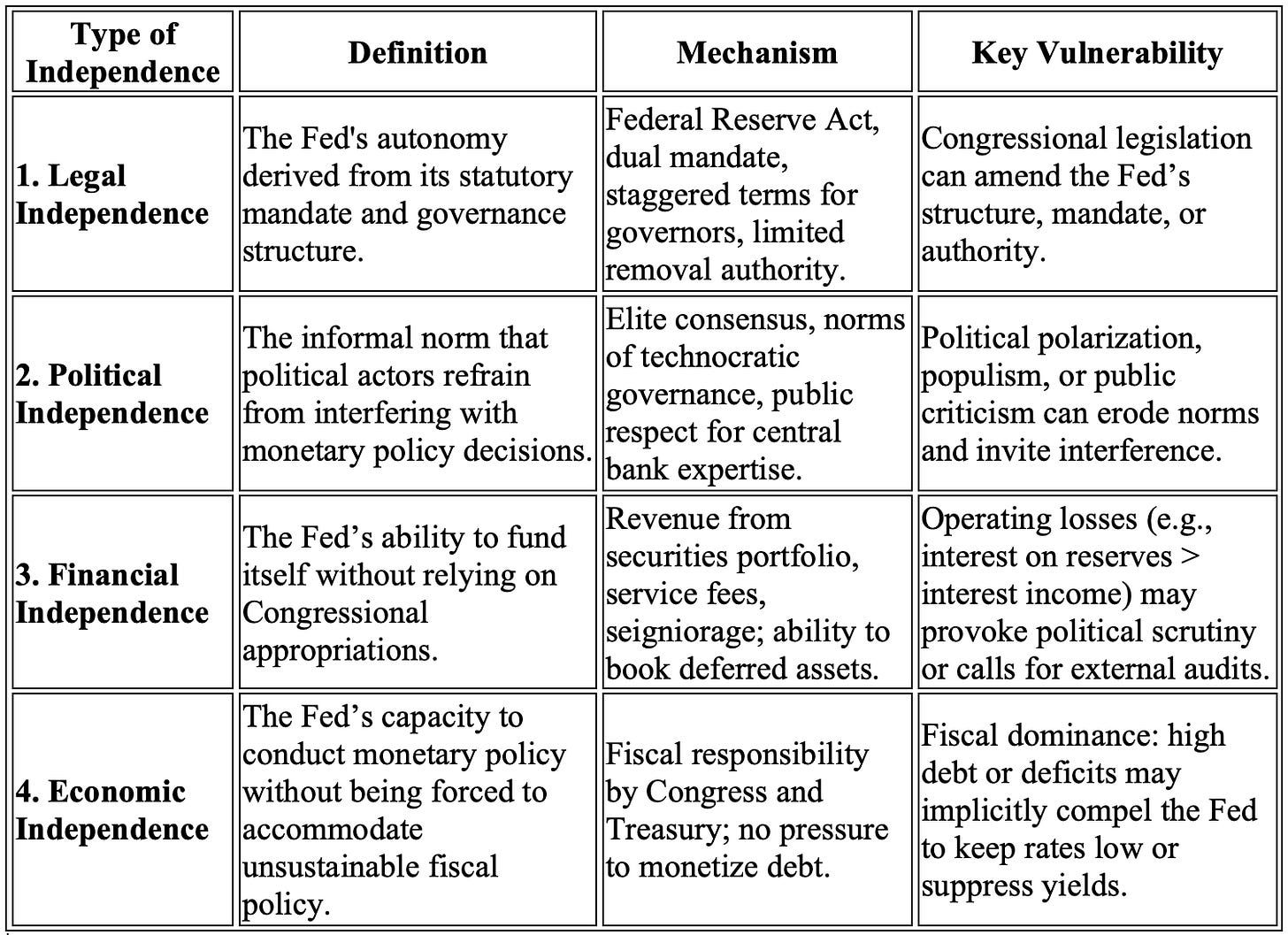Questions for Stephen Miran
Policy-Focused Questions for the Federal Reserve Board of Governors Nominee
This week, the Senate Banking Committee will hold a hearing on Stephen Miran’s nomination to fill the seat vacated by Adriana Kugler on the Federal Reserve Board of Governors. I asked colleagues at the Mercatus Center what policy-focused questions they would pose to Miran if they were the ones vetting the next potential Fed governor. Their questions fall into three big themes: how the Fed is governed, how it sets policy and runs its tools, and how it balances independence with accountability.
First, I asked David Beckworth—Senior Research Fellow, host of the Macro Musings podcast, and author of the Macroeconomic Policy Nexus newsletter—for his take. He offered the following questions:
Structural Reform
Questions drawn from your 2024 paper with Dan Katz, “Reform the Federal Reserve’s Governance to Deliver Better Monetary Outcomes.”
1. You propose nationalizing Reserve Banks and letting state governors appoint their boards. Why should state politicians, who are also subject to electoral incentives, be trusted more than current directors?
2. You criticize the Fed for “mandate creep” into areas like climate risk, fiscal stimulus advocacy, and racial equity initiatives. Where should the line be drawn between legitimate monetary analysis and inappropriate political engagement?
3. You propose moving bank regulation and crisis-response powers away from the FOMC. How would you structure those functions to remain effective in a fast-moving financial crisis? Would separating monetary policy from supervision risk dangerous blind spots, since supervisory insights often inform rate policy.
Targeting and Operational
4. What do you think about the Fed’s new framework that was introduced at Jackson Hole? The Fed gave up its 2020 framework called Flexible Average Inflation Targeting (FAIT) and has returned to something more like traditional Flexible Inflation Targeting (FIT).
5. If you could start from scratch and wave a magic wand, what would be your preferred monetary policy framework?
6. What type of central bank operating system is ideal in your view: a floor system, a corridor system, or a ceiling system?
7. What would you recommend the Fed do to make the Discount Window and Standing Repo Facility more effective so that they are used as a normal part of business for banks and other financial firms?
8. What type of assets should the Fed be able to buy up in a severe financial crisis?
Fed Independence
9. How do you balance increased accountability and oversight for the Fed with the need for Fed independence to make tough choices?
10. If push comes to shove and fiscal costs are getting prohibitively costly, would you be willing to have the Fed step in to buy up treasury securities and lower interest costs on them? If so, what would be your exit plan to get out of such a situation after fiscal costs get reined in?
11. Do you see the current pressure on the Fed as more of a threat to its legal, political, financial, or economic freedom? See table below for details:

Thomas Hoenig—Distinguished Senior Fellow, former FDIC vice chair, and former president of the Kansas City Fed—would ask the following questions:
The FOMC recently updated its monetary policy framework and reestablished its 2% flexible inflation targeting framework. Do you support the updated framework?
With inflation now at close to 3%, and unemployment at a relatively low 4.2%, can interest rates be lowered and the 2% inflation target be achieved?
The real federal funds interest rate is close to 1.5%. Chairman Powell says this is a "mildly restrictive" rate. Given the current demand and returns on invested capital, and the government's increasing borrowing needs, do you judge this rate to be restrictive? If so, why?
Is Fed independence important to achieving price stability, maximum employment, and long-run economic stability?
I also have a few of my own questions:
The Fed’s inspector general (IG) is appointed by, and reports to, the Board of Governors—a clear conflict of interest. Would a presidentially appointed, Senate-confirmed IG better ensure impartial oversight and accountability?
Should the Fed, as Treasury Secretary Scott Bessent suggests, launch an internal review of its non-monetary operations to ensure that "mission creep" does not jeopardize the independence of its core monetary policy mission?
In your 2024 paper with Dan Katz, you argued that the Fed’s governance has fostered “groupthink.” Do you think this still persists, and what changes would you prioritize to fix it?


